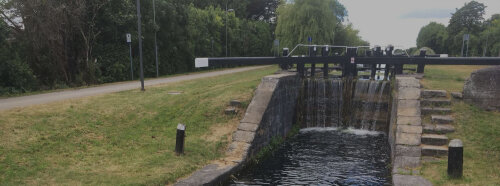Best Lawsuits & Disputes Lawyers in Dublin
Share your needs with us, get contacted by law firms.
Free. Takes 2 min.
List of the best lawyers in Dublin, Ireland
About Lawsuits & Disputes Law in Dublin, Ireland
Lawsuits and disputes pertain to any legal conflicts or disagreements that may arise between parties, whether individuals or organizations. In Dublin, Ireland, this encompasses a broad spectrum of legal issues including contract disputes, property disputes, personal injury claims, family law disputes, and more. The legal framework governing these matters in Dublin is rooted in Irish common law, statutes, and European Union law. Understanding the local legal landscape is crucial for effectively navigating lawsuits and disputes.
Why You May Need a Lawyer
Seeking legal assistance in lawsuits and disputes is often necessary due to the complexity of legal processes and the potential impact on your personal or professional life. Common situations where legal help may be required include:
- Disputes over property ownership or tenancy agreements.
- Breaches of contract or commercial disagreements.
- Personal injury claims arising from accidents or negligence.
- Family law disputes including divorce and child custody.
- Employment-related issues such as unfair dismissal or workplace discrimination.
- Resolving disputes with government bodies or public authorities.
An experienced lawyer can provide valuable guidance, represent your interests, and help achieve a favorable outcome.
Local Laws Overview
Key aspects of local laws relevant to lawsuits and disputes in Dublin include:
- Contract Law: Governs agreements between parties and outlines the remedies for breach of contract.
- Property Law: Deals with disputes related to property ownership, tenancy, and land use.
- Personal Injury Law: Covers compensation claims for injuries sustained due to another party's negligence.
- Family Law: Addresses issues such as divorce, child custody, and maintenance.
- Employment Law: Regulates the relationship between employers and employees, including workers' rights and dispute resolution.
- Litigation Procedures: Includes rules on filing lawsuits, court procedures, and alternative dispute resolution mechanisms such as mediation and arbitration.
Frequently Asked Questions
What should I do if I receive a legal notice or lawsuit?
Contact a qualified lawyer immediately to assess the situation, understand your legal position, and respond appropriately to the notice or lawsuit.
How long does it take to resolve a legal dispute in Dublin?
The duration of a legal dispute varies based on the complexity of the case, court schedules, and whether the matter is settled through litigation or alternative dispute resolution.
Can I represent myself in court?
Yes, you can represent yourself, but it is generally advisable to seek professional legal representation to ensure your interests are adequately protected.
What is the cost of hiring a lawyer for a lawsuit or dispute?
Legal fees can vary significantly based on the complexity of the case, the lawyer's experience, and the required legal services. Consultation fees, hourly rates, and flat fees are commonly used billing methods.
What is mediation, and how can it help in my dispute?
Mediation is an alternative dispute resolution process where a neutral third party helps the disputing parties reach a mutually agreeable solution. It can be faster and less costly than litigation.
What is the statute of limitations for filing a lawsuit in Dublin, Ireland?
The statute of limitations varies depending on the type of lawsuit. For example, personal injury claims typically have a two-year limitation period. Consult a lawyer to understand the specific limitation period for your case.
How can I enforce a court judgment in my favor?
If you obtain a court judgment, your lawyer can advise you on enforcement options, such as garnishing wages, seizing assets, or placing liens on property.
What is the difference between civil and criminal disputes?
Civil disputes involve conflicts between individuals or entities, typically resolved through compensation or specific performance. Criminal disputes involve actions considered offenses against the state, punishable by fines, imprisonment, or other penalties.
Can I appeal a court decision if I am not satisfied with the outcome?
Yes, you have the right to appeal a decision to a higher court if you believe there has been a legal error or injustice. Consult your lawyer to understand the appeal process and grounds for appeal.
Do I need a lawyer for small claims court?
While you can represent yourself in small claims court, having legal advice can be beneficial to prepare your case and increase your chances of success.
Additional Resources
For further assistance and information, you may consider the following resources:
- The Law Society of Ireland: Offers resources and a directory of solicitors in various areas of law.
- Citizens Information: Provides comprehensive information on legal rights and processes in Ireland.
- Courts Service of Ireland: Offers information on court procedures, services, and locations.
- Irish Legal Aid Board: Provides legal aid and advice for those who qualify.
Next Steps
If you require legal assistance in a lawsuit or dispute, consider the following steps:
- Identify the nature of your legal issue and gather relevant documents and information.
- Research and select a qualified lawyer with experience in the specific area of law related to your dispute.
- Schedule a consultation to discuss your case, understand your legal options, and determine the best course of action.
- Follow your lawyer's advice and actively participate in the legal process to ensure the best possible outcome.
Taking prompt and informed action can significantly impact the resolution of your legal dispute.
Lawzana helps you find the best lawyers and law firms in Dublin through a curated and pre-screened list of qualified legal professionals. Our platform offers rankings and detailed profiles of attorneys and law firms, allowing you to compare based on practice areas, including Lawsuits & Disputes, experience, and client feedback.
Each profile includes a description of the firm's areas of practice, client reviews, team members and partners, year of establishment, spoken languages, office locations, contact information, social media presence, and any published articles or resources. Most firms on our platform speak English and are experienced in both local and international legal matters.
Get a quote from top-rated law firms in Dublin, Ireland — quickly, securely, and without unnecessary hassle.
Disclaimer:
The information provided on this page is for general informational purposes only and does not constitute legal advice. While we strive to ensure the accuracy and relevance of the content, legal information may change over time, and interpretations of the law can vary. You should always consult with a qualified legal professional for advice specific to your situation.
We disclaim all liability for actions taken or not taken based on the content of this page. If you believe any information is incorrect or outdated, please contact us, and we will review and update it where appropriate.
Browse lawsuits & disputes law firms by service in Dublin, Ireland
Dublin, Ireland Attorneys in related practice areas.














